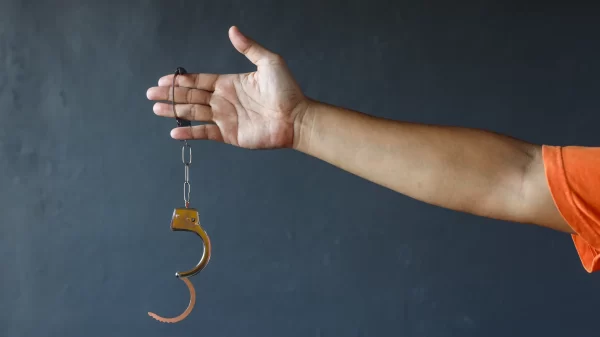|
Getting your Trinity Audio player ready...
|
Despite Alabama-specific guidelines that showed the state should have granted more than 80 percent of paroles in 2023, the Alabama Board of Pardons and Paroles granted just 8 percent, adding to a prison overcrowding issue and disincentivizing good behavior in prisons, an al.com report found.
The lengthy, in-depth examination of the state’s parole problems highlights a number of staggering trends, including that the board often fails to follow its own guidelines and ignores state laws. In one instance, board chair Leigh Gwathney voted to deny parole to a non-violent inmate who is a quadriplegic and spends most of his days at a long-term healthcare facility.
Much of al.com’s story, “Denied: Alabama’s Broken Parole System,” highlights Gwathney’s effect on the parole board, noting that the drastic decline in paroles – going from more than half five years ago to just 8 percent last year – began when she was appointed chair in 2019. It also notes that Gwathney, a former prosecutor at the Alabama Attorney General’s Office, has voted 100 percent of the time with the recommendations from the AG’s office.
There are also other concerning disparities, such as the racial component. A review of records for a period in 2023 showed that Black men were 25 percent less likely to be paroled than white men. Women were more likely to be paroled than men.
Rep. Chris England, who has highlighted the board’s issues for years, noted on social media that the racial disparities are much worse when more data is considered. Al.com’s story looked at parole records for only two months in 2023. But for all of 2020, white applicants were granted parole at a 21.9-percent clip, while Black applicants got paroled just 12.3 percent of the time. A year later, the gap grew, with white inmates more than two-and-a-half times more likely to be granted parole.
England noted, and provided stats, that the disparities persisted even when accounting for the types of crimes committed and sentence length. For example, for non-violent offenders, the rate of paroles in 2018 were 66.7 percent for Black candidates and 63.8 percent for whites. But after Gwathney took over in 2019, those rates fell in 2020 to 29.6 percent for white candidates and 21.7 percent for Black candidates. It was 34.3 percent and 27 percent in 2021.
Both England and the al.com piece point out that Gwathney and the board have violated Alabama law numerous times by setting off parole hearings for five years after denials, despite the law forbidding it in some instances. But more egregious, according to England’s stats, which he said were provided by the state, five-year setoffs (the maximum years allowed) jumped from 13.5 percent for Black applicants to more than 82 percent.
Black applicants in 2021 were granted setoffs of two years or less just 10 percent of the time. White applicants: 29.1 percent.
The al.com story digs into the causes behind the massive changes on the board and quotes a number of experts and the former parole board chairman on how the current board has eschewed science and good practices for punitive measures that have proven ineffective and counterproductive.




















































